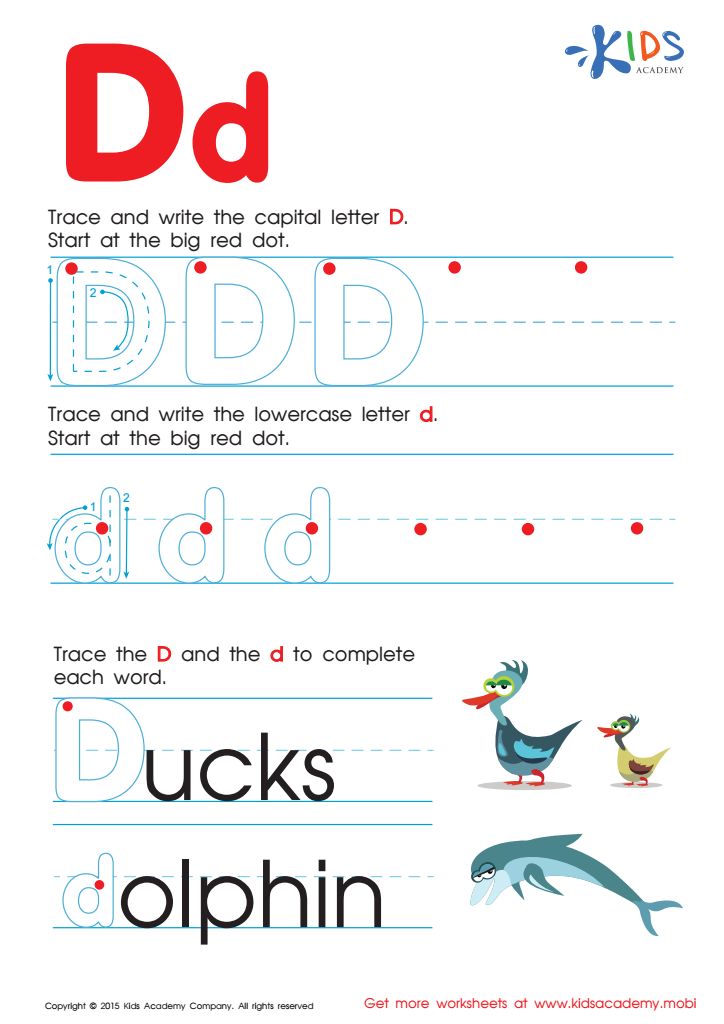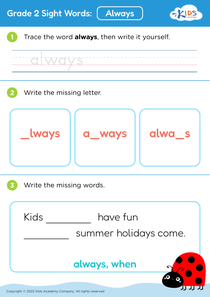Alphabet tracing Grade 2 ABC Order Worksheets
6 filtered results
-
From - To
Boost your second grader's alphabet mastery with our engaging Alphabet Tracing Grade 2 ABC Order Worksheets. Designed to enhance writing skills and alphabet recognition, these worksheets guide children through the alphabet in a fun, interactive way. By tracing each letter and arranging them in the correct order, kids develop hand-eye coordination, fine motor skills, and confidence in their alphabet knowledge. Perfect for classroom use or at-home practice, our worksheets are an essential resource for building a strong foundation in literacy. Visit Kids Academy to download and start tracing your path to success today!


Letter R Tracing Page


Letter P Tracing Page


Letter Q Tracing Page


Letter H Tracing Page


Letter T Tracing Page


Letter D Tracing Page
Alphabet tracing and learning ABC order are foundational activities that greatly impact a child's ability to grasp basic literacy skills. Parents and teachers should prioritize these exercises because they serve as building blocks for more advanced reading and writing capabilities.
Alphabet tracing helps Grade 2 students strengthen their fine motor skills, which are crucial for handwriting. It promotes muscle memory for letter formation, ensuring that children can write legibly and efficiently as they progress academically. As they trace letters repeatedly, they also reinforce their understanding of letter shapes and structures, paving the way for smoother, more confident writing.
ABC order, on the other hand, enhances a child's ability to organize and categorize information. Being familiar with alphabetical order, children can more easily look up words in dictionaries, understand how words are arranged in indexes and databases, and improve their overall cognitive sorting abilities. This skill is crucial for navigating not just language but is also foundational for developing effective numeracy and problem-solving skills.
Combining both activities, tracing letters and learning alphabetical sequences, sets a strong educational foundation. It empowers children with the essential tools for academic success, fosters a sense of achievement, and promotes engagement in the learning process. Such early literacy skills play a significant role in long-term educational outcomes and overall intellectual development.

 Assign to My Students
Assign to My Students










